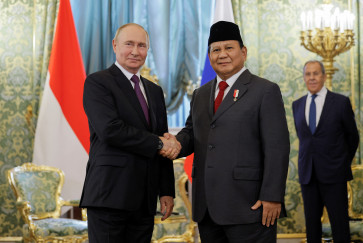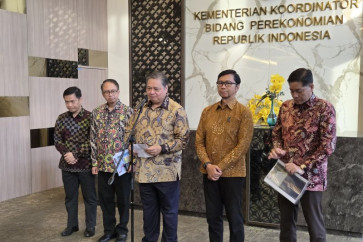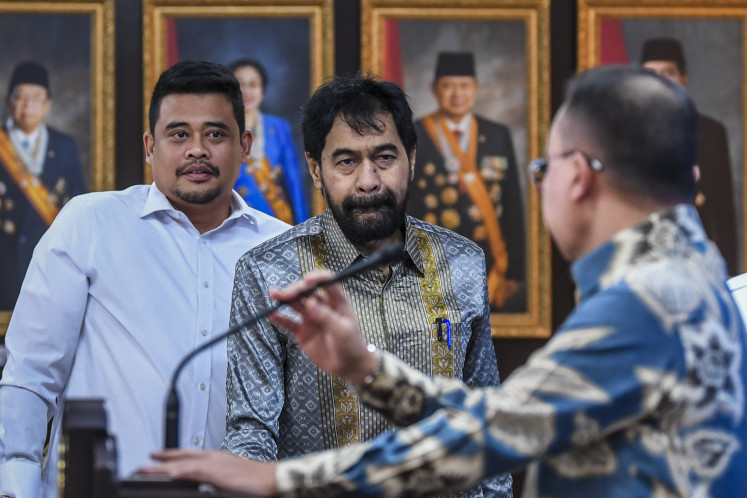Popular Reads
Top Results
Can't find what you're looking for?
View all search resultsPopular Reads
Top Results
Can't find what you're looking for?
View all search resultsYearender: The best Indonesian books (about Indonesia) of 2022
Change text size
Gift Premium Articles
to Anyone
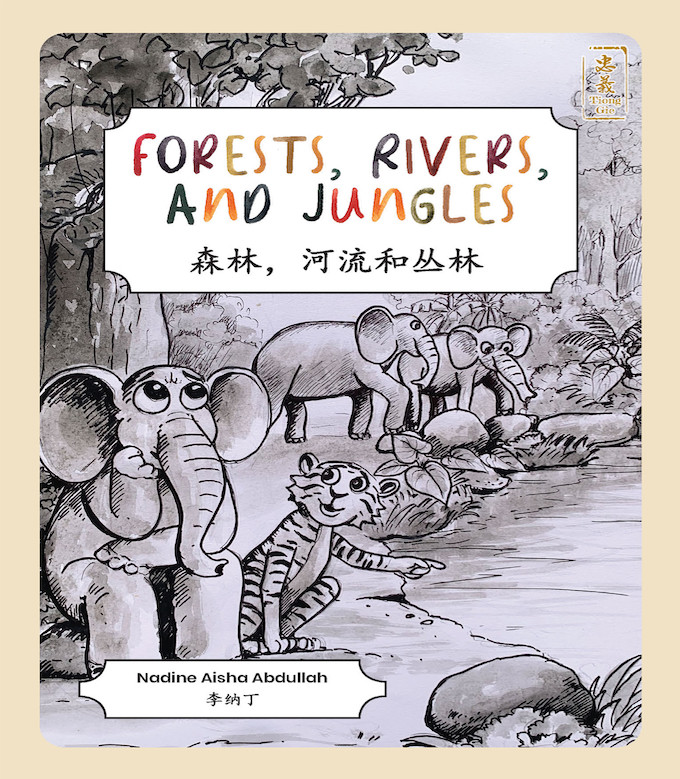
T
his year might have come and gone, but these books on Indonesia and its surprises will pique your interest enough to turn the page and make the year last a little longer.
Indonesia – to paraphrase Tom Hanks in his Oscar-winning turn as the title character of the beloved 1994 film Forrest Gump – “is like a box of chocolates. You’ll never know what you’re going to get.” That premise rang true for the Indonesian and foreign authors whose books on Indonesia were published in 2022, as they drew different forms of inspiration from Indonesia and its people for their fiction and nonfiction, respectively.
Fiction
‘Heartbreak Motel’ by Ika Natassa (Gramedia)

For many people, work provides a reprieve from life’s problems and issues, not unlike substances or getting away by traveling or getting together with others. Writer Ika Natassa explored this escapism with Heartbreak Hotel, published in April. Told in the first-person narrative of method actress Ava Alessandra, the novel explores the problems that ensue when those issues hit a place one regards as a comfort zone.
A bestselling writer whose works included A Very Yuppy Wedding (2007), Antologi Rasa (2011) and Critical Eleven (2015), Ika’s use of a method actress who goes in and out of character and gains fame and fortune by doing so is telling, as the character asks the question that dogs us all through life, namely who are we? Regardless of whether this point hits home or not, what is certain is that the themes and plot twists of Heartbreak Motel make food for thought and the soul.
‘Forests, Rivers and Jungles’ Nadine Aisha Abdullah (Tionggie Publishing)
Indonesian teenage author Nadine Aisha Abdullah has made fables new again, as her debut book Forests, Rivers and Jungles adds a fresh, intelligent touch to the age-old genre. The origins of the British International School student’s fables are all the more striking as they were original works that she wrote for a school assignment.
The multilingual fables have an Asian spin inspired by Buddhist, Confucian and Taoist philosophy. This is reflected by the use of Mandarin and English in the stories, which deal with themes ranging from selfishness, self-interest and “the folly of human nature”, as well as staying true to oneself. Most of all, the fables touched on restoring the natural order of the universe and using intuition to gain wisdom.
‘Four Aunties and a Wedding’ by Jesse Q. Sutanto (Berkley Books)
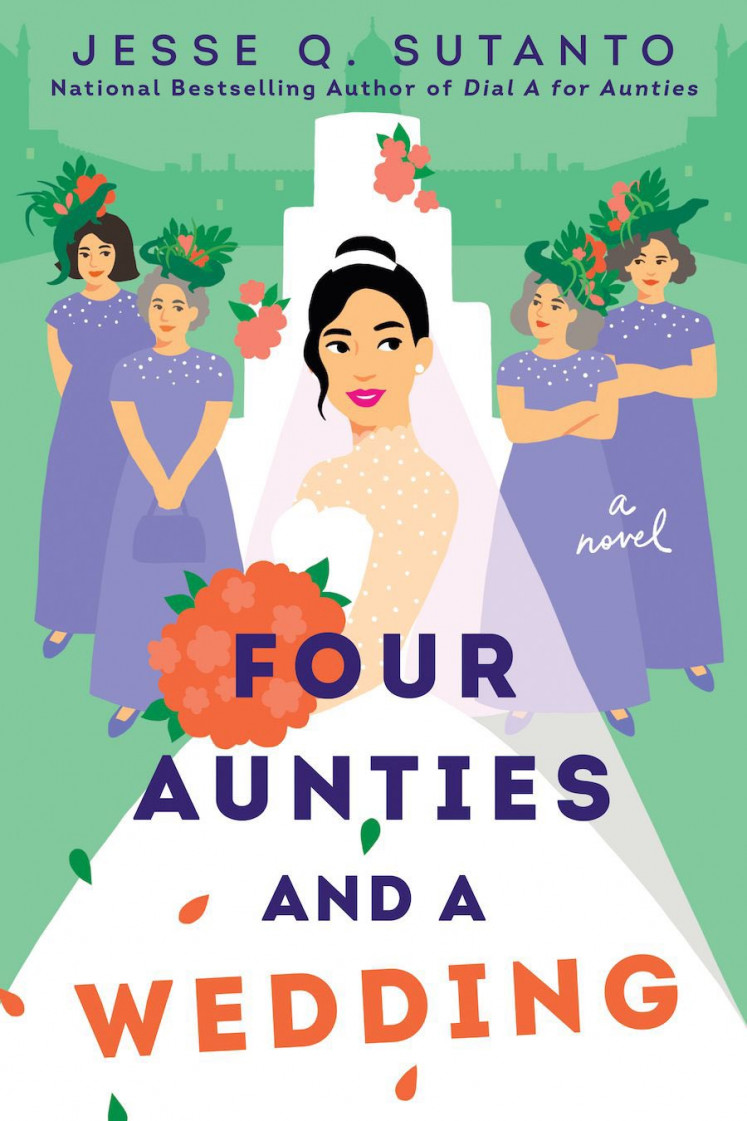
Indonesian writer Jesse Q. Sutanto continues to make waves with her sophomore novel.
Four Aunties and a Wedding, a sequel to her critically acclaimed debut Dial A for Aunties. Featuring the same quartet of meddling aunts that made Dial A for Aunties a combination of “Weekend at Bernie’s meet Crazy Rich Asians,” according to goodreads.com.
While the Oxford University Creative Writing alumnus’ sophomore novel has yet to reach the heights of Dial A for Aunties, which earned Jesse the United Kingdom’s Comedy Women in Print prize or a Netflix adaptation, Four Aunties and a Wedding is a worthwhile follow-up. This is down to her deft observations of family values and the use of shady criminality for comedic effect. The novel, along with her children’s book Theo Tan and the Fox Spirit and young adult novel Well, That Was Unexpected, further stamps Jesse’s place as one of Indonesia’s preeminent writers – and one who is bound to put the country on the map of contemporary literature.
Nonfiction
‘Kopi Dulu’ by Mark Eveleigh (Penguin SEA)
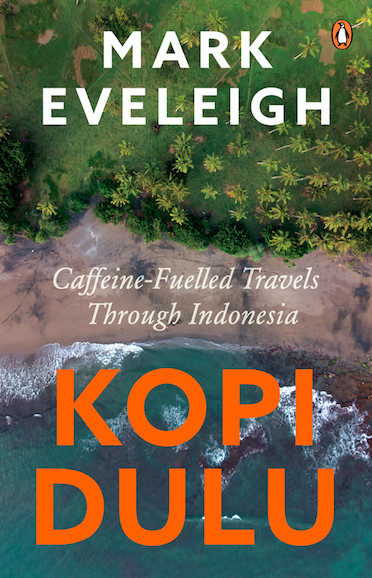
Coffee might be better known as a beverage to start the day because of its caffeine content, as indicated by the Indonesian phrase kopi dulu (coffee first). But for British journalist Mark Eveleigh, Kopi Dulu is also the title of his travelogue through Indonesia. The drink fueled his Indonesian travels and served as an icebreaker between him and its people. Spanning more than 25 years, the phrase and title of the book takes him through his travels from North Sumatra to West Papua in an odyssey totaling “15,000 kilometers and 50 islands.”
Whether it be getting face to face with orangutans and Komodo dragons in their habitats, seeing macabre funeral rites at the Tana Toraja highlands of South Sulawesi firsthand or eating bushmeat in North Sulawesi, Kopi Dulu proves that the journey, not the destination, is the objective for a voyage in Indonesia and elsewhere.
‘Islam in Japanese Eyes: Conversations with Indonesian Muslims’ by Hisanori Kato (Kompas Gramedia)
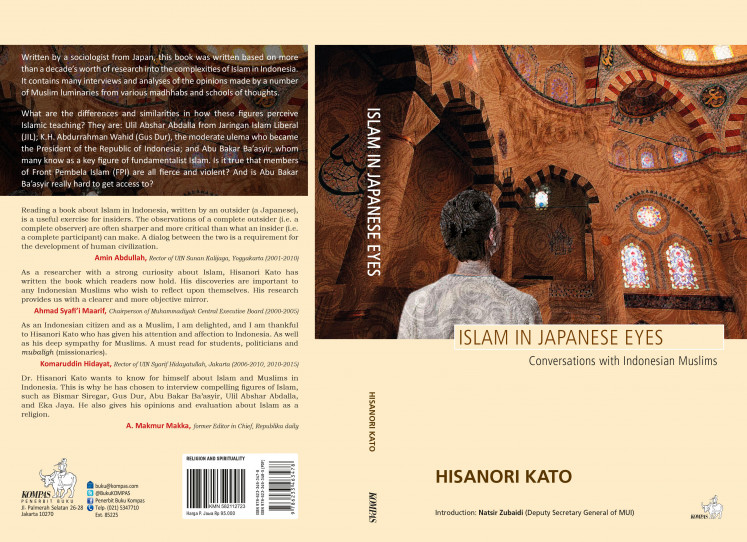
The surge of conservative Islam in Indonesia, especially after the fall of late President Suharto’s New Order regime in 1998, continues to be a cause for concern for observers and laypeople alike. But for Japanese academic Hisanori Kato, the role of religion in Indonesian society and politics is a Rubik’s cube to be figured out, instead of a potential clear and present danger, as chronicled in his book Islam in Japanese Eyes: Conversations with Indonesian Muslims.
The Chuo University policy studies professor goes through Indonesian Islam's good, bad and ugly. This includes socializing with moderate Muslims like Muslim feminist Lily Munir and Ulil Abshar Abdalla on the one hand, and fundamentalist figures like cleric Abu Bakar Baasyir as well as Eka Jaya, a member of the now defunct Islamic Defenders Front (FPI) on the other. The book highlighted Kato’s interaction with Indonesia’s fourth president Abdurrahman’ Gus Dur’ Wahid, and his championing of inclusiveness. Islam in Japanese Eyes: Conversations with Indonesian Muslims is a recommended read for anyone keen to study the role of Islam in 21st-century Indonesia.
‘Mencintai Munir’ by Suciwati (Yayasan Museum HAM Munir)

Indonesian human rights activist Munir continues to loom large in the hearts of civil rights activists, social justice warriors and others continuing his fight, nearly 20 years after he was assassinated by poison on board a Garuda Indonesia flight to Amsterdam on Sept. 7, 2004. His widow Suciwati ensured that his legacy would endure by releasing Mencintai Munir (Loving Munir), a memoir recounting their time together, in September.
Part reminiscence, part eulogy, Suciwati dispels the widespread conventional belief among Indonesian conservatives disparaging Munir as an “enemy of the state” and “anti-Indonesian” due to his hard-hitting investigations of human rights violations committed by the officials he criticized. But most of all, Suciwati’s Mencintai Munir chronicles a love that drives Munir’s work and keeps his fight for justice alive today.


